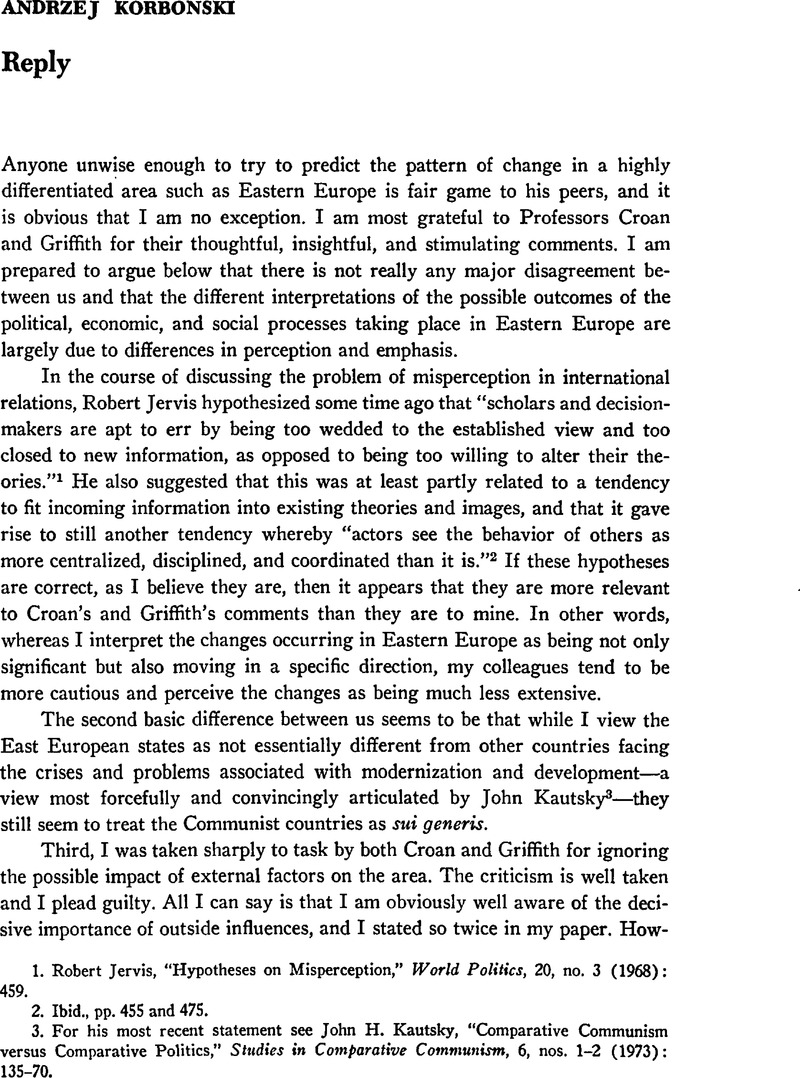Article contents
Abstract

- Type
- Discussion
- Information
- Copyright
- Copyright © Association for Slavic, East European, and Eurasian Studies. 1974
References
1. Robert, Jervis, “Hypotheses on Misperception,” World Politics, 20, no. 3 (1968) : 459.Google Scholar
2. Ibid., pp. 455 and 475.
3. For his most recent statement see John H., Kautsky, “Comparative Communism versus Comparative Politics,” Studies in Comparative Communism, 6, nos. (1973) : 135–70.Google Scholar
4. Mark, Kesselman, “Order or Movement? The Literature of Political Development as Ideology,” World Politics, 26, no. 1 (1973) : 149–50.Google Scholar
5. William E. Griffith, “Communist Cadre Training : Source, Indication, and Reflection of Political Liberalization and Change” (Massachusetts Institute of Technology, Research Project on Communism, Revisionism and Revolution, no. A/69-14), pp. 9-10.
6. For a perceptive analysis of this process see David, Lane, “Dissent and Consent Under State Socialism,” Archives Européennes de Sociologie, 13, no. 1 (1972) : 37–44.Google Scholar
7. Almond, Gabriel A. and Powell, G. Bingham, Jr., Comparative Politics (Boston and Toronto, 1966), p. Toronto.Google Scholar
8. For an interesting discussion of this issue see Sinanian, Sylva, Deak, Istvan, and Ludz, Peter C., eds., Eastern Europe in the 1970s (New York, 1972), pp. 242–45 and 250-51.Google Scholar
9. Kautsky, “Comparative Communism versus Comparative Politics, ” p. 141.
10. Rustow, Dankwart A., A World of Nations (Washington, D.C., 1967), p. 17.Google Scholar
11. Alex, Inkeles, “Models and Issues in the Analysis of Soviet Society,” Survey, no. 60 (July 1966), p. 3.Google Scholar
- 1
- Cited by


